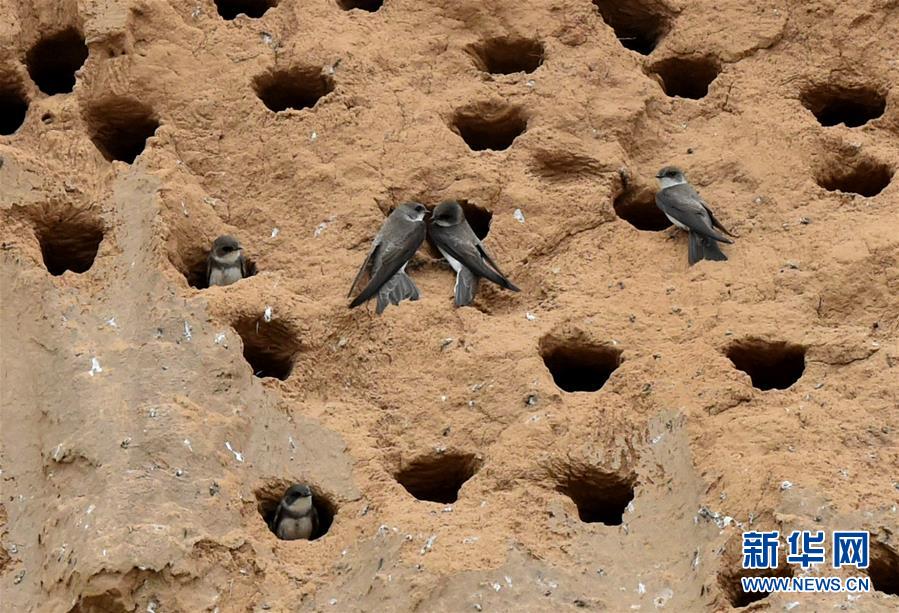【】
The largest elephant relocation effort in history has finally come to a successful end.
A total of 520 elephants were taken from two separate conservation spaces -- Liwonde National Park and Majete Wildlife Reserve -- and moved more than 200 miles to their new home in Nkhotakota Wildlife Reserve.
SEE ALSO:Intense video shows elephant stranded at sea being saved by rescuersVeterinarians and conservationists from African Parks, a non-governmental and non-profit organization that manages parks and protected areas, carried out the massive translocation in the span of two years.
African Parks announced the completion of the effort on Twitter on Aug. 2
We have successfully completed one of the world’s largest elephant translocations #WelcometheHerd #500Elephants https://t.co/lhaQZ2H3qI pic.twitter.com/GXyFOiEng0
— African Parks (@AfricanParks) August 2, 2017
The relocation involved capturing and sedating all the elephants one by one, with sedation being a crucial step in relocating the six-ton pachyderms.
The tranquilizers are made of a synthetic opioid that's 10,000 times more potent than morphine. One drop of it could kill a human within seconds. Conservationists managed to tranquilize the elephants from helicopters and then used cranes to move the elephants onto trucks.
SEE ALSO:Once again, here's why people should think twice about riding elephantsBeing social animals, it was vital that close family groups were moved together. This helped to reduce the elephants' stress and increased the chance of them successfully adapting to their new environment.
Kaddu Sebunya, African Wildlife Foundation president, thanked African Parks for the completion of the effort.
Thank you @AfricanParks for telling a heroic African conservation story to the world. #500elephants. We applaud you. https://t.co/Pvm2GJQr9S pic.twitter.com/r7GZ0K1mOW
— Kaddu Sebunya (@AWFPresident) August 3, 2017
Overcrowding in their former reserves -- as elephant populations have grown and civilization has crept closer and closer -- has led to intensifying conflicts with humans. Conservationists hope that the new home will give the elephants more space and improved safety.
Many of the transported elephants had been victims of violence, a fact evidenced by bullet-shaped holes in their ears.
According to National Geographic, African Parks officials hope Nkhotakota will become one of Malawi’s leading elephant wildlife reserves and help improve the region’s employment and tourism opportunities.
As for the elephants themselves, the newly transplanted gentle giants creates a more even distribution of their population across both their original homes and their new one, creating a safer environment for growth.
Featured Video For You
Watch this team rescue an elephant that was swept into the sea
TopicsActivismAnimals
相关文章

Pole vaulter claims his penis is not to blame
Following the cringeworthy moment in which pole vaulter Hiroki Ogita's penis grazed the bar and he f2025-12-14
Adorable barber shop dog just wants a little off the ears, please
Not all dogs avoid the groomers.Benny the bulldog, in particular, loves hanging out at his local spo2025-12-14
New iPhone 7 ad is dark and scary
There's this phone called the iPhone 7, you may have heard of it. It will be available for purchase2025-12-14
India to get its first hotline to report child pornography next week
India will finally get an online tool next week where people can report incidents of child porn. It2025-12-14
Fake news reports from the Newseum are infinitely better than actual news
Actual investigative journalism: who needs it?At least, that's what some people will likely conclude2025-12-14
Don't put words in J.K. Rowling's mouth or she will Tweet you into oblivion
LONDON -- Seriously people, it's time you learned: J.K. Rowling does not tolerate any tomfoolery on2025-12-14

最新评论